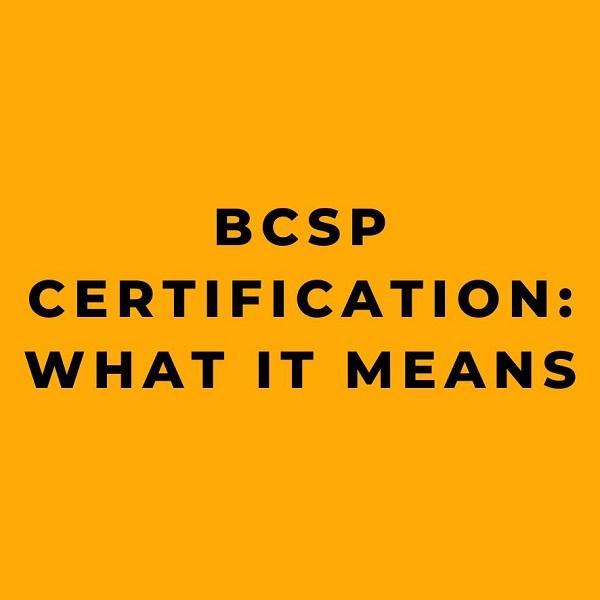The Board of Certified Safety Professionals (BCSP) provides a suite of certifications for safety practitioners, each designed to acknowledge their expertise, experience, and dedication to workplace safety. Earning a BCSP certification is a testament to a professional’s commitment to their career, the safety of people, and the environment. This article will explore the importance of BCSP certification, the steps to obtain and maintain it, and its potential impact on a safety professional’s career and the organizations they serve.
Significance of BCSP Certification
BCSP certifications are highly valued in the safety and health sector. They validate a safety practitioner’s proficiency, experience, and dedication to maintaining the highest safety standards in the workplace. By acquiring a BCSP certification, professionals show their commitment to continuous professional development and staying updated with the latest industry practices and regulations.
Recertification Requirements
After passing the BCSP examination and earning their certification, professionals must comply with recertification requirements to keep their certification active. This includes paying an annual fee and accumulating recertification points every five years. These points can be earned through professional development activities like attending safety training programs, conferences, and seminars. This ensures that certified professionals continue to expand their knowledge and skills, contributing to the ongoing enhancement of safety practices in their respective fields.
Choosing the Appropriate Certification
BCSP offers a range of certifications tailored to various specializations within the safety profession, such as construction, industrial hygiene, and more. The choice of certification depends on factors like the individual’s education, work experience, and career goals. For example, the Certified Safety Professional® (CSP®) certification, one of the oldest credentials, is widely recognized by employers and is often a career goal for many safety professionals.
Education and Work Experience Requirements
To be eligible for BCSP certification, individuals must meet specific education and work experience requirements. For certifications that require a college degree, the degree must be from a university accredited by the Council of Higher Education Accreditation (CHEA). Work experience requirements vary based on the certification being pursued, with each certification having its own prerequisites to ensure that candidates have the necessary skills and knowledge to excel in their respective roles.
The Certification Process
Obtaining a BCSP certification involves several steps. After selecting the suitable certification and meeting the education and work experience requirements, individuals must apply for the certification online. Once the application is approved, candidates can purchase an exam and schedule a time to take it. The exam is comprehensive, covering a range of topics relevant to the specific certification being pursued. Passing the exam is a significant accomplishment, marking the start of a professional’s journey as a certified safety practitioner.
Maintaining Certification and Ethical Responsibilities
After passing the exam and earning certification, professionals must pay an annual renewal fee and adhere to BCSP’s Code of Ethics. This code outlines the ethical responsibilities of certified safety professionals, emphasizing the importance of maintaining integrity, honesty, and professionalism in their work. Additionally, maintaining certification requires the accumulation of recertification points through ongoing professional development activities, ensuring that certified professionals stay updated with industry best practices and advancements.
Impact on Career and Future Opportunities
Acquiring a BCSP certification can significantly influence a safety professional’s career. Certified professionals often encounter new career opportunities and an average salary increase of $30,000 or more. Beyond financial benefits, BCSP certification also enhances a professional’s standing within their organization and the industry, leading to increased influence, respect, and the ability to make a more significant impact on workplace safety.
Conclusion
BCSP certification is a significant achievement in a safety professional’s career. By meeting the stringent requirements and ethical standards set by BCSP, certified professionals demonstrate their commitment to excellence, continuous learning, and the highest levels of professionalism. The impact of BCSP certification extends beyond individual careers, contributing to the overall improvement of safety practices and the protection of workplaces, communities, and the environment. As safety professionals continue to pursue BCSP certifications, they play a crucial role in shaping the future of the safety profession and ensuring the well-being of individuals and organizations.
For more detailed information on the certification process, please visit the BCSP Certification Guide.










